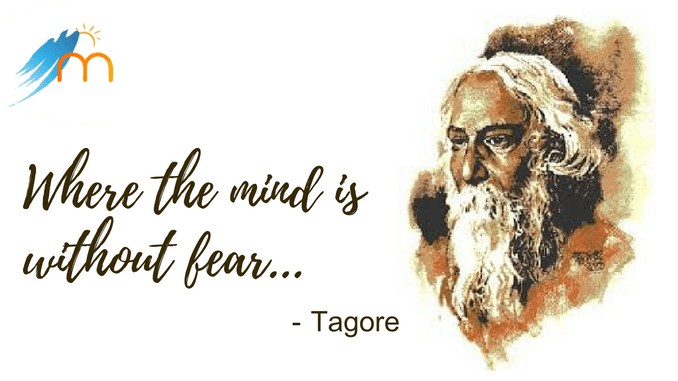
Mehuli Kar | Staff Blogger
Today is the 157th birth anniversary of Rabindranath Tagore who is not only a global icon but also a legend who bridged the literary gap between the us and the West. He was the first Non European to receive the prestigious Nobel prize for literature in the year 1913 for ‘Song Offerings’ – a translation of the world famous ‘Gitanjali’.
Here are some lesser known facts about Tagore you may not have known.
- When he was awarded with the Nobel, the committee stated, “Because of his profoundly sensitive, fresh and beautiful verse by which, with a consummate skill, he has made his poetic thought expressed in his own English words, a part of the literature of the west.”
- Unfortunately in 2004, his Nobel was stolen from Vishwa Bharati University, but later the Swedish Academy replaced it with two replicas, one in gold the other in bronze.
- While it is widely known that Tagore composed the National Anthems for India and Bangladesh, Srilankan National anthem is a Sinhalese translation of one of Tagore’s songs making him the only person to have written 3 National Anthems!
- Tagore has travelled all around the world. He accepted an invitation from the Mexican Government which pledged US$ 100000 to his institution to commemorate his visits.
- It is said his wife Mrinalini Devi sold off her jewellery to support the initial funding of Vishwa Bharati.
- In spite of getting tremendous support from his wife Tagore did not accomplish his duties towards her properly. It is told that he did not mourn much over her death when she passed away at a tender age of 29.
- Tagore shared a deep bonding with his sister in law Kadambari Devi who inspired young Ravi greatly. He was deeply moved when she committed suicide by drinking poison. His work Bhagna Hriday (Broken Heart) depicts his unconditional love for her.
- Another well known affair of Tagore’s infatuation is for Anna whom he befriended during his stay in Ahmedabad. He lovingly gave her the name ‘Nalini’. The 80-year-old poet once reminisced, “‘You must never wear a beard. Don’t let anything hide the outline of your face. Everyone knows that I have not followed that advice. But she herself did not live to see my disobedience proclaimed upon my face.”
- Tagore was extremely attached to his youngest son Shamin. He could see his own self in him.The inseparable bonding of a mother (Mrinalini Devi) and son (Shamin) had inspired Tagore in many of the poems in his book ‘Shishu‘. Shamin’s death at a very tender age brought him deep grief.
- Tagore married off three of his daughters Bela, Renuka, and Meera at a very young age of 15, a decision he regretted later in life.
- His daughter Bela passed away at the same age as his wife. The melancholic Tagore found his dead daughter in young Renuka whom he delivered great daughterly affection.
- It happened before Rabindranath Tagore died. He was lying, weak and motionless on his bed, and everyone knew there was not much time left for him. His friends and relatives were paying visit to the dying poet.

Be the first to comment